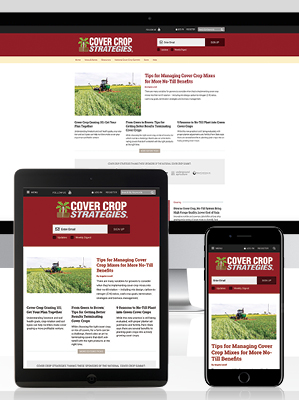Cover Cropping in Integrated Farming Systems
Last week we had boots on the ground at the Big Soil Health Event in Cedar Falls, Iowa where agronomist David Kleinschmidt emphasized the importance of considering Carbon to Nitrogen ratios of cover crops and residues.




Post a comment
Report Abusive Comment